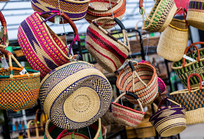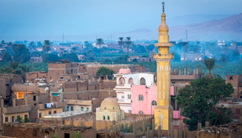Regarding divorce, The Mauritanian culture particularly. When it comes to family dynamics marriage and divorce are deeply influenced by traditional customs and Islamic practices.
Various cultural religious and social perspectives may be used to examine the role and experience of Mauritanian women in divorce situations.
Background and Marriage NormsCultural

In the largely Muslim nation of Mauritania in West Africa. Marriage and divorce are only two examples of the many facets of everyday life influenced by Islam.
Marriage is frequently arranged by families in traditional.
Mauritanian society and relationships are frequently founded more on social standing familial ties or financial concerns than purely on individual love or attraction.
In Mauritania, women are required to marry at an early age and are highly esteemed.
In their duties as mothers and spouses. Marriage is seen as a crucial step for women.
As it provides a sense of social security economic support and community respect. But because of this conventional framework.
women may also find themselves dependent on their spouses. Which can make divorce and other difficult situations much more difficult.
Regarding divorce in Mauritania: Customs and Practices.
 The legal foundation of Mauritania is based on Islamic law or Sharia which allows for divorces.
The legal foundation of Mauritania is based on Islamic law or Sharia which allows for divorces.
Men and women can both file for divorce but there are certain gender-specific differences in the procedure and consequences.
For men, divorce can be initiated through “talaq,” which involves the husband verbally stating his intent to divorce his wife. This process is straightforward and does not require a formal explanation or legal proceeding. On the other hand.
Women also have the right to seek a divorce. They must do so through legal proceedings.
Which often involves presenting a valid reason or seeking the intervention of a court.
Regarding divorce The Role of Women in Proceedings.

When a woman wishes to initiate a divorce in Mauritania.
She might opt for what is known as “khula,” Where she requests a separation from her husband. However, unlike talaq.
Where a man can divorce without any further conditions. Khula often requires the woman to return the dowry (mahr) she received at the time of marriage or give up certain financial entitlements.
This can create a financial barrier for women. Who are already economically dependent on their husbands. Making it harder for them to initiate a divorce even if they are in an unhappy or abusive marriage.
Regarding divorce Custody and Economic Implications.

The question of child custody is one of the main factors in Mauritanian divorces. Particularly from the viewpoint of the women.
Traditionally custody of young children is given to the mother. However, this arrangement can change once the child reaches a certain age especially if the father wants custody.
The economic implications of divorce can be significant. Women might struggle to support themselves and their children without financial help from their ex-husbands.
In cases where a woman initiates the divorce. There might be a social stigma attached. In some parts of Mauritania, divorced women might be viewed with suspicion or be seen as less desirable for remarriage.
While the legal system gives women the freedom to split from their marriages This cultural attitude can make it difficult for women to start over after divorce.
Social Support and Community Dynamics

Despite the challenges: there are also aspects of Mauritanian culture that provide support to women during divorce.
Family ties and community networks are strong. And women can often rely on their extended families for shelter. Emotional support and sometimes even financial assistance during and after the divorce process.
This support system is crucial in assisting women in coping with the many aspects of divorce.
In some cases: Mauritanian women also have the advantage of cultural practices that empower them. For example in certain communities. Women have the right to own property livestock or even run their own businesses.
Which can offer some degree of financial independence.
However, this varies widely across the country and is more common in urban areas compared to rural settings. Where traditional gender roles might be more strictly enforced.
Changing Dynamics and Empowerment

Over recent years: there have been efforts to improve the rights and empowerment of women in Mauritania.
Women’s rights organizations and non-governmental organizations strive to inform.
Women about their legal rights particularly those pertaining to marriage and divorce. These organisations also provide legal assistance to women.
Those who want to seek divorce ensure they understand their entitlements regarding alimony child support and property division.
Despite these efforts, challenges remain, particularly in rural areas where awareness and access to legal services might be limited.
Many women might: not fully understand their rights, or they might face pressure from their families to avoid seeking a divorce.
Even in cases of domestic abuse or other serious issues.
Islamic Perspective on Divorce

From an Islamic perspective, divorce is seen. As a last resort and is generally discouraged unless there are compelling reasons.
The Quran outlines a process for reconciliation. Encouraging mediation between the couple to resolve their issues before resorting to divorce.
In Mauritania, these principles are often observed. And families might intervene to try to reconcile the couple before they proceed with a divorce.
Islam also mandates that in order to prevent their ex-wives and children from going.
Without a divorce, men must financially support them after the divorce even only temporarily.
While this is legally enforced actual implementation can vary. And some women might struggle to receive the support they are entitled to.
Conclusion

Islamic beliefs changing societal perceptions and long-standing cultural conventions all influence Mauritanian women’s divorce experiences.
Although both men and women can file for divorce under the current legal framework.
The actual situation can be more complicated, with women frequently experiencing social.
Financial and logistical barriers make it difficult to navigate the process independently.
Efforts to empower women, raise awareness about their rights. And provide support through family and community networks.
Are crucial for ensuring that women in Mauritania can make informed decisions about their marriages.
Additionally ongoing dialogue about gender equality education and economic independence.
Will play a significant role in shaping a future. Where Mauritanian women have more control over their lives marriages, and decisions regarding divorce.
In summary, the divorce is legally accessible for women. In Mauritania, cultural norms economic challenges and social attitudes can often complicate the process.
For women who want to stand up for their rights in divorce proceedings. There is hope for more equal and balanced outcomes thanks to growing awareness and support from many groups.